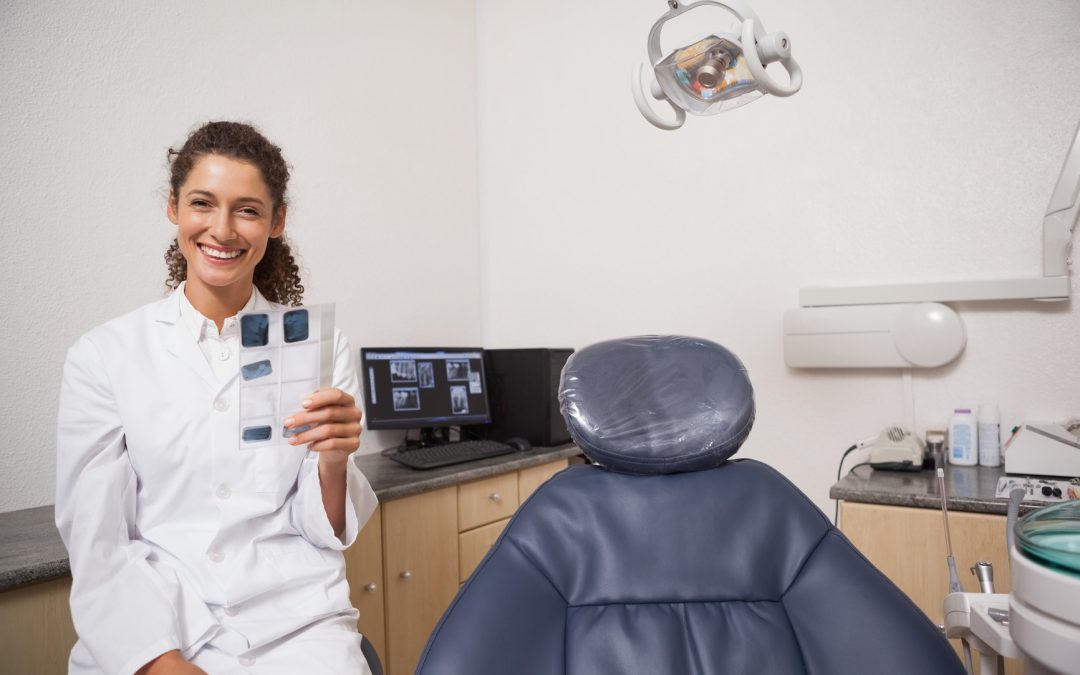At South Davis Pediatric Dentistry, dental radiographs or X-rays are an important tool we use to make sure your child’s teeth are as healthy as possible. By using X-rays we are able to see imperfections in teeth, bones and soft tissues in the mouth that can’t be seen during a visual examination. However, many parents ask us, “Are dental X-rays dangerous for my child?” This post explains what radiation is and answers many frequently asked questions regarding radiation.
Radiation
Radiation is a pretty scary word. But radiation isn’t always something to fear. The basic definition of radiation is any source of energy that travels in the form of a particle or a wave. For example, the light coming from your lightbulb as well as the signal being emitted from your cell phone are considered radiation. While there are definitely some types of radiation that are more harmful than others, many types of radiation occur all around us and are not considered dangerous.
When X-ray imaging was first introduced to the medical field, it was more dangerous due to amount of time required for an image to be captured. This meant that a patient received more exposure to the X-rays. However, today’s dental X-ray technology has been improved so drastically compared to the early days of X-ray use that both the duration and amount of radiation exposure are significantly lower.
So can a dental X-ray cause cancer?
Frequent and unnecessary dental x-rays can increase the chances of getting cancer in much the same way that going out in the sun without skin protection can cause skin cancer. As long as they are not having X-rays performed more often than needed, your child’s health should not be negatively impacted by X-rays.
How much radiation is in a dental X-ray?
The average American receives a dose of 3 millisieverts (mSv) of radiation from natural sources (sunlight and elements in soils) each year according to the Department of Health and Human Services. A routine dental radiograph only emits around 0.04-0.15 mSv. This means that your child would have to receive between 20-75 dental X-rays a year to be exposed to the same amount of radiation they will be exposed to by nature.
With that said, children are more radiosensitive than adults (radiation has stronger effects on their developing bodies) so it is important that their dentist has been specifically trained to perform X-rays on children.
The Benefits of dental X-rays
When you are preparing your child’s next dental visit, remember that x-rays make it possible to see cavities, growths and damage to their jaw or teeth that would be otherwise impossible to see. Knowing about any problems early on will allow us to treat them before they become dangerous (and much more expensive to fix).
If you have any other questions about X-rays, please feel free to give us a call at (801) 294-8880, message us on Facebook or send us a message using our contact page. We are looking forward to seeing you and your child in our office for their next checkup!



Recent Comments